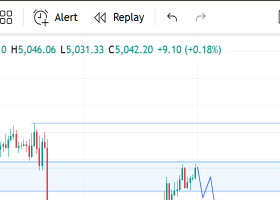
Many U.S. retail traders wonder where to turn when they discover that they have been cheated by a broker-dealer. (Information for U.K., E.U., and Canadian traders also appears below). If you have been trading for a while, this has likely happened to you at least once. The crux of the problem is that your access to evidence regarding the dispute is extremely limited--in contrast to the broker-dealer's full access to liquidity provider trade logs, all order books, etc. Even if you have good evidence, you still have to decide where to go with it: federal court, state court, small claims court, a state securities bureau, the SEC (federal Securities and Exchange Commission), CFTC (Commodity Futures Trading Commission), NFA (National Futures Association), or FINRA (Financial Industry Regulatory Association).
Most likely, federal court will not be a viable option. Complaint filing fees in federal can be $500 or more, corporate defense lawyers can motion your case "to death," they can try to remove it to state court in the home state of their client-broker-dealer, and federal law is so complex that some state court lawyers don't even practice in federal courts. Discovery of evidence can be a monumental process in and of itself. As an exception... If a broker-dealer stole a whopping amount of money from me, I would hire a well-qualified securities lawyer to represent me. Obviously, this only adds to the massive expense of going to federal court. It's just not worth it unless there is a large amount in dispute.
State court is a slightly less expensive option, but I would expect to encounter jurisdictional issues. State courts can be leery of its home residents filing complaints against out-of-state defendants. If all judges allowed this, every online business would be subject to lawsuits far away from their home states. Even though continually transacting business arguably creates a better nexus (or out-of-state connection) than a one-time online purchase, I would expect a vigorous argument against it from corporate defense lawyers. I would also be sure to include any state securities bureau regulations (more on this below) in my written complaint. I would then argue that it would be absurd to enforce state securities regulations only against in-state actors in my state--while out-of-state actors remain free to defraud everyone by hiding behind state lines. Here, the discovery process is burdensome as well. Again, this is really better left to a well-qualified securities lawyer if the amount in dispute has to be worth it.
Small claims court is a more viable option for disputed amounts of about $5000 or less. Filing fees can be $35 or so. Small claims court is really state-run arbitration before a state judge. Many states do not allow lawyers to represent clients in small claims courts. If I were representing myself here, this would be good because it would prevent corporate defense attorneys from showing up. Again, I would be sure include any state securities bureau regulations in my written complaint. As previously mentioned, small claims cases are generally deemed to be arbitration cases. As such, the filing of a small claims case is generally not in violation of any arbitration terms (more on this below) in a broker-dealer's trading agreement that I may have signed. A small claim is just an arbitration anyway.
A state securities bureau can not only provide better regulations to form the basis of my claim, but it would also offer its own arbitration and/or mediation services. The clearest advantage here is that I would be dealing with agency officials who are experts on state securities regulations. In other words, a claim is more likely to successfully proceed in a venue where the whole point of the venue is to enforce securities regulations. Filing fees would be as low as $0. This would not be a violation of an agreement to arbitrate.
The SEC has power over equities-based securities like stocks, stock options, and stock ETF's. In the past, the SEC has tended to prosecute the worst of the worst offenders. I have to question whether they actually have the resources to go after every small amount in dispute against equities-based broker-dealers. Most SEC cases are likely to end in disciplinary action, with only the most serious cases going to federal court where victims can recover stolen money. The SEC is a government funded agency. SEC action would not be a violation of an agreement to arbitrate, but any such agreement would likely prevent my recovery of money in court.
The CFTC has power over futures and futures derivatives, but it generally farms out enforcement of CFTC rules to the NFA--as well as NFA rules. Like the SEC, the CFTC will take court action against the worst of the worst offenders and can only recover stolen money in court. The CFTC is a government funded agency. CFTC action would not be a violation of an agreement to arbitrate, but any such agreement would likely prevent my recovery of money in court.
The NFA enforces CFTC rules and NFA rules. If I filed an NFA complaint, they might investigate and it was found valid, they would likely offer mediation and/or arbitration. However, the NFA cannot order a broker-dealer to return stolen money to a victim. NFA actions are limited to disciplinary action and money collected as fines/penalties goes to the government. The NFA is funded by broker-dealers. Filing an NFA complaint would not be a violation of an agreement to arbitrate. If I had money stolen from me, I would avoid going to the NFA. An NFA decision in favor the broker-dealer would create a factual record that would be tough to debunk in another venue (more on this below). The NFA can't recover my stolen money anyway.
FINRA is somewhat of a catch-all organization that accepts a wide array of complaint types. If I filed a FINRA complaint, they might investigate and then make a decision. For a fee of $50, they offer mediation and/or arbitration if they choose not to investigate/decide the case. FINRA also, refers disputes that fall outside of its power to other government agencies that do have power. FINRA is funded by broker-dealers. Filing a FINRA complaint would not be a violation of an agreement to arbitrate. As this is clearly the most convenient venue for all traders, a zip file containing a FINRA brochure and a FINRA complaint form is attached to this blog (below). The brochure describes how FINRA can potentially recover money for a victim, how time limits imposed by a broker-dealer's arbitration clause can potentially prevent a victim from filing a complaint, and how a FINRA decision is binding--preventing a victim from retrying the case in a formal trial court. (Most government agency decisions can be appealed directly to a formal appellate court but remember... FINRA is not a government agency.)
Victims trading in the U.K. should look to the FCA (Financial Conduct Authority) for help, while victims in the E.U. should look to the ESMA (European Securities and Markets Authority) for help. Victims trading in Canada should seek help from their specific territorial regulator via the CSA (Candian Securities Administrators).
On a related note, I generally opt out of all arbitration terms that I encounter--including those appearing in broker-dealers trading agreements. Once upon a time, a wise negotiator said that all negotiation occurs in the shadow of a lawsuit. With the advent of private arbitration clauses, negotiation power can be relinquished by blindly signing a document. After all, who is a private arbitrator likely to side with... The corporation that repeatedly partners the private arbitrator into its printed contract forms and repeatedly pays the private arbitrator, or me? I should note that the Federal Arbitration Act (FAA) and federal court precedent require a 30 day opt-out period (after signing) in all arbitration clauses. In cases where the drafter of the arbitration clause omits an opt-out notice, I still have the federal right to opt-out, and a court or agency would likely void the entire arbitration clause.
I should also mention that I would not file a complaint with a third-party venue before attempting to negotiate directly with the broker-dealer. In my experience, it can take several weeks for multiple departments at a broker-dealer to adequately respond or inadequately respond. I don't wait much longer because most arbitration/agency complaints must be filed within 30 days of the broker-dealer's violation.
LEGAL DISCLAIMER: Although the Author has an ABA accredited Juris Doctor law degree, nothing in the above information may be construed to be legal advice. The Author, who is not a practicing licensed attorney, merely shares his own experience and hypothetical situations above. For legal advice and/or representation regarding any specific matter, you should consult a licensed attorney in the appropriate jurisdiction.


